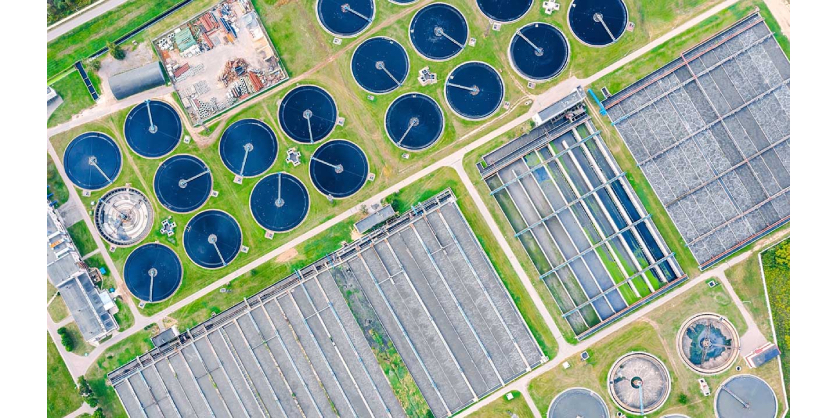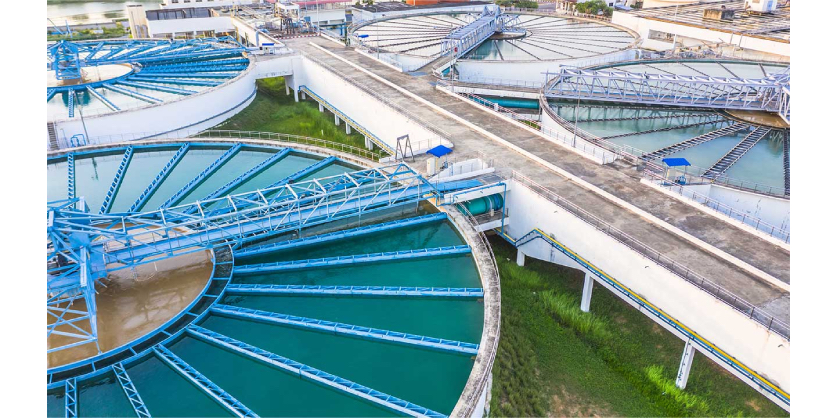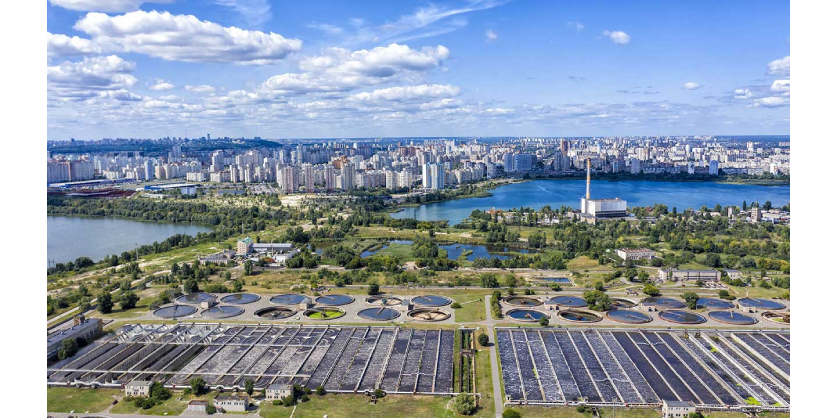ABB Reveals an Additional 8.56 Billion Cubic Meters of Wastewater a Year Needs to be Treated to Meet UN Goals
March 21, 2023

- To reach UN water targets by 2030, global wastewater treatment capacity needs to increase by 8.56 billion cubic meters each year
- Research by ABB to mark World Water Day reveals a need to invest in an additional 469 wastewater treatment facilities annually
- Early integration of technology to drive efficiency at plants is key
Global wastewater treatment capacity needs to increase annually by 8.56 billion cubic meters and investment in an additional 4691 treatment facilities per year is required to meet United Nations (UN) goals2. These are the findings of independent research commissioned by ABB ahead of World Water Day (WWD) on March 22, 2023.
As the UN prepares to report on progress made against its Sustainable Development Goals (SDG), ABB’s research focuses on SDG 6.3 which aims to improve water quality by halving the proportion of untreated wastewater globally, increasing recycling, and minimizing the release of hazardous materials. The UN says 2.2 billion people lack access to safely managed drinking water, while more than 4.2 billion people lack safely managed sanitation.

However, treating wastewater is energy intensive, with the industry consuming up to three percent of the world’s total energy output3 and contributing to over 1.5 percent of global greenhouse gas emissions4.
“This research proves more needs to be done to help support the UN goals and accelerate progress in tackling water scarcity,” said Brandon Spencer, President of ABB Energy Industries. “But we need to ensure we are achieving these wastewater treatment targets in the most energy and resource efficient way possible to make it sustainable. This is where technology is key.”
While increasing wastewater treatment capacity is a priority, the early integration of technology to drive efficiency at plants is also vital. ABB’s automation, electrification and digital solutions are helping monitor, analyze and manage wastewater plant operations. In association with crucial measurement and control solutions, which collect and transmit a wealth of operational and diagnostic data, ABB systems help optimize resource efficiency and reduce energy consumption.
Development Economics, which has over 20 years’ research experience, utilized the same data employed by the UN to assess what real-term measures are needed. Based on modelling using a 50-million-liter daily capacity wastewater treatment plant as the benchmark, a further 469 treatment facilities – the volume equivalent of 3.4 million Olympic swimming pools – is required each year.
The scale of the challenge linked to UN SDG 6.3 is highlighted in a report5 from 2021 assessing the volumes of wastewater collected, treated, and reused. The research, which is used by the UN, concludes that 48 percent or 171.3 billion cubic meters of wastewater is uncollected or untreated annually. To meet SDG 6.3 – which targets halving the proportion of untreated wastewater by 2030 – these figures need to be reduced to 24 percent and 85.65 billion cubic meters.

In 2022, ABB’s Energy Transition Equation report6 analyzed how better use of wastewater could relieve pressure on water supplies through greater integration of automation and digital technologies:
- Wastewater sites can reduce carbon emissions by up to 2,000 tons per annum
- With over 50,000 plants worldwide, 100 million tons of CO2 could be saved each year
- By applying a package of automation and digital solutions, water companies can reduce carbon emissions as well as deliver annual operational savings of up to $1.2 million per plant
Related Story
Research from ABB Shows How Cities Can Tackle Water Stress
Recently, ABB published the first in a series of new reports highlight the impact that technology can have in enabling industrial customers to reduce carbon emissions and manage the energy transition for a more sustainable future.





